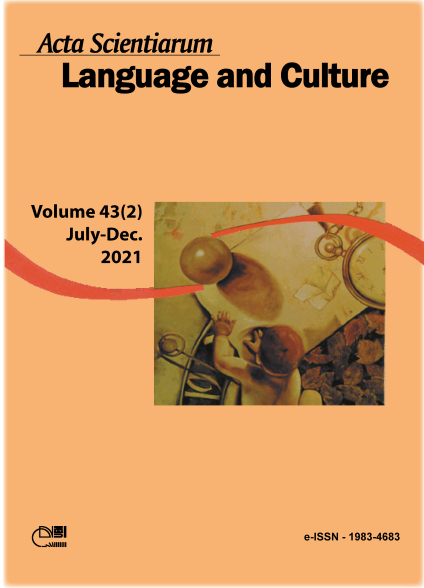‘Quarenta em quarentena’: (sobre)vivências em tempos pandêmicos
Resumo
A coletânea 40 em quarentena: 40 visões de mundo em pandemia (2020), disponibilizada no formato de e-book, gratuitamente, é aberta e fechada por poemas. Inicia-se pelo fim, sinalizando ao leitor um horizonte de meses sombrios, provocados pela expansão do novo Corona Vírus. O fim é, portanto, o começo, isto é, a direção de tempos melhores. O leitor transita pelos contos e crônicas reunidos e divididos por temas. Independetemente das rubricas – Medo, Solidão, Amor –, os escritos compõem uma grande trança narrativa, cujos fios exibem assuntos recorrentes, tais como críticas políticas e sociais, a rotina e ressignificação do espaço doméstico, a impossibilidade de luto etc. Tanto na oferta gratuita, quanto na sua composição, os textos se abrem numa significativa oferta de diálogo. Nesse painel, muitos assuntos são e foram arduamente explorados pela mídia, contudo, ao serem tratados literariamente, provam que a criatividade e a vontade de tocar os outros “enjaulados”, quarentener, podem resultar em renovadas facetas. Na vocação dos temas, estamos próximos às viagens imaginárias, ou aquelas que investigam cômodos e objetos, como nos clássicos de Maistre, Garret e Sterne, assim como na obra-prima machadiana, que presta reverência a todos. Reitera-se o poder terapêutico da palavra, da literatura, e da própria contagem de histórias, como defende Aílton Krenak (2019). Tratando-se de um mal invisível, reverbera o ensaio de Susan Sontag (1989), em que a teórica opoe a turbeculose ao câncer. Pensamos nos conceitos de saúde e a doenca, ambos suportados por um corpo, que é histórico, discursivo (FOUCAULT, 1978) e sígnico (FERREIRA, 1994), remetendo a um arcabouço cultural específico. Nesse sentido, o Brasil dos dias atuais, em sua acentuada crise política, ideológica, econômica e social, é um celeiro tristemente justificado de conturbadas práticas e (des)crenças diante do poder desse vírus que se afigura como o mal do século XXI.
Downloads
DECLARAÇÃO DE ORIGINALIDADE E DIREITOS AUTORAIS
Declaro que o presente artigo é original, não tendo sido submetido à publicação em qualquer outro periódico nacional ou internacional, quer seja em parte ou em sua totalidade.
Os direitos autorais pertencem exclusivamente aos autores. Os direitos de licenciamento utilizados pelo periódico é a licença Creative Commons Attribution 4.0 (CC BY 4.0): são permitidos o acompartilhamento (cópia e distribuição do material em qualqer meio ou formato) e adaptação (remix, transformação e criação de material a partir do conteúdo assim licenciado para quaisquer fins, inclusive comerciais.
Recomenda-se a leitura desse link para maiores informações sobre o tema: fornecimento de créditos e referências de forma correta, entre outros detalhes cruciais para uso adequado do material licenciado.




















6.png)









